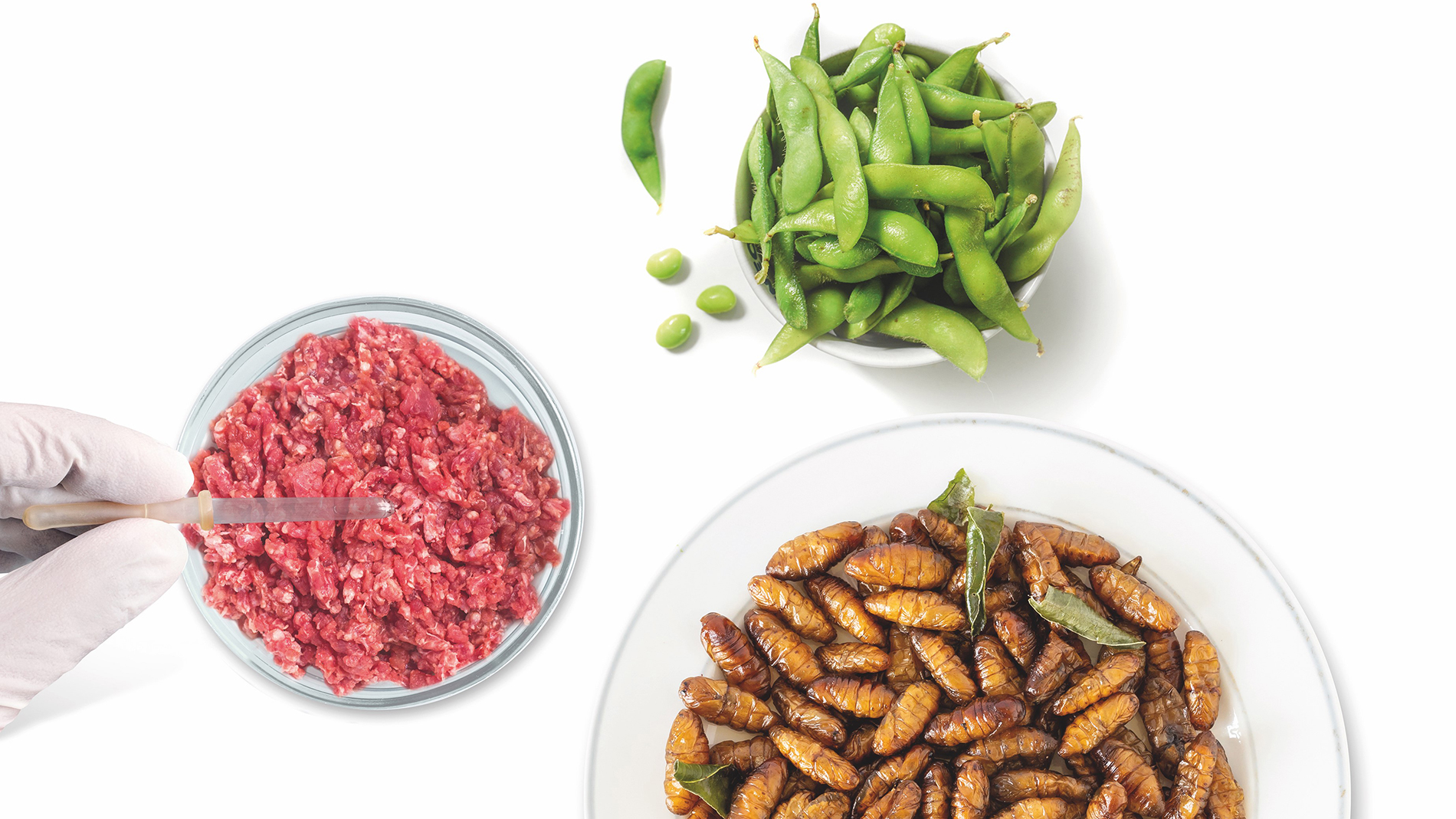The range of plant-based alternatives is steadily increasing, with German companies producing almost 39 per cent more vegetarian food in 2020 than in the previous year, according to the German Federal Statistical Office. In addition, the Veganuary Challenge 2022 - an international campaign calling for people to try a plant-based diet as a New Year's resolution - saw record participation in Germany with more than 200 companies presenting market innovations and campaigns.

In addition to soy and seitan, regional raw materials such as lupines or peas are used in the production of the products and the added health value plays an increasingly important role. "Our vegetarian meat alternatives consist of a few natural ingredients, which we transform into fibrous structures with a high level of research and a focus on quality and culinary quality - without any preservatives or other additives," explains Judith Wemmer, member of the executive board of Planted Foods AG, which was founded in 2019. "With our own transparent production facility near Zurich, we can bring innovations to market in the shortest possible time and are thus ready to drive the nutritional turnaround in the long term with increasingly sustainable technologies and raw materials."
Parallel to the offer of healthy and environmentally friendly meat alternatives, the market for plant-based drinks is also growing. According to a study by ING Bank, the revenues generated by this industry will rise to 5 billion euros in the European Union and Great Britain by 2025. "As a source of protein, the soybean - especially from European organic cultivation - continues to play a major role," explains Bernd Esser, Managing Director of Berief Food GmbH, one of the leading German manufacturers of organic plant-based products. "We are also currently developing drinks based on peas and hemp seeds, among others."
Behind successful product innovations there is often time-consuming and cost-intensive research and development. That is why Planteneers GmbH - an independent subsidiary of the Stern-Wywiol Gruppe founded in 2021 - has developed the Plantbaser. The digital configurator enables manufacturers of plant-based foods to put together their desired product online within around 15 minutes. In the process, properties such as ingredients, texture and mouthfeel can be individually specified "Digitisation is also advancing in the B2B sector with great strides," explains Dr Dorotea Pein, Head of Planteneers Product Management. "In this respect, it seemed only logical to offer a tool that makes digital product development much easier for our customers.
Climate-friendly protein supply through insects
Alongside plant-based alternatives, insect-based foods have the potential to make a significant contribution to the protein supply of the future. There are around 2,000 edible insects worldwide, some of which are a natural part of a balanced human diet in Asia, South America, Australia and Africa. Insect farming produces a lot of food by using
The use of food waste as animal feed in insect farming creates a complete value chain and the farming is vertical, which makes it particularly resource-efficient.
In order to advance food innovation in Europe, manufacturers are lobbying for the political equality of insect-based foods with other high-value products. "We want to help our economic sector grow, and combining good products with an ecological mission is the key," explains Christian Bärtsch, CEO of the start-up Essento Insect Food GmbH, which introduced the first insect burger to Swiss retailers in 2017. A first political step in this direction has already been taken: on 3 May 2021, mealworms became the first insect ever to be approved as a novel food in the European Union. "This is an important milestone, further strengthens consumer confidence and gives us access to new markets," says Bärtsch.
Meat of the future „Cultivated Meat“
Another alternative and innovative protein supplier is "Cultivated Meat". To produce the meat alternative from the petri dish, a few muscle cells are removed from a healthy animal after local anaesthesia and applied to a nutrient solution in which they multiply. However, around 20,000 of these cells are needed for a single burger pattie, which is associated with numerous challenges as well as high production costs: First of all, a cell culture is needed that allows mass production. In addition, a suitable culture medium is needed as well as bioreactors in which the production of the desired quantities is possible.
"Our goal is to produce meat in a more climate-friendly way so that people can continue to consume animal products without problems in the future," says Laura Gertenbach, founder of Innocent Meat, the first German start-up dedicated to producing meat products from animal stem cells. "What we really need for this is bold investment in new processes like there is in America, because cultured meat will only end up in the supermarket if it is affordable."
Bundesverband für Alternative Proteinquellen e.V.: Differentiate instead of ideologising
To accelerate this change, the Bundesverband für Alternative Proteinquellen e.V. (BALPro) was founded in March 2019. (BALPro) was founded in March 2019. Its current membership of over 100 includes start-ups, food experts, research institutions and representatives of the conventional meat industry. The aim of the association is to jointly promote a sustainable and economically efficient agricultural and food industry free of individual interests. "To this end, we engage in a differentiated and transparent dialogue with science, business, politics and consumers and would like to give them the opportunity to network and exchange information free of ideologisation," explains Fabio Ziemßen, the association's first chairman.
Author: Michelle König, BALPro